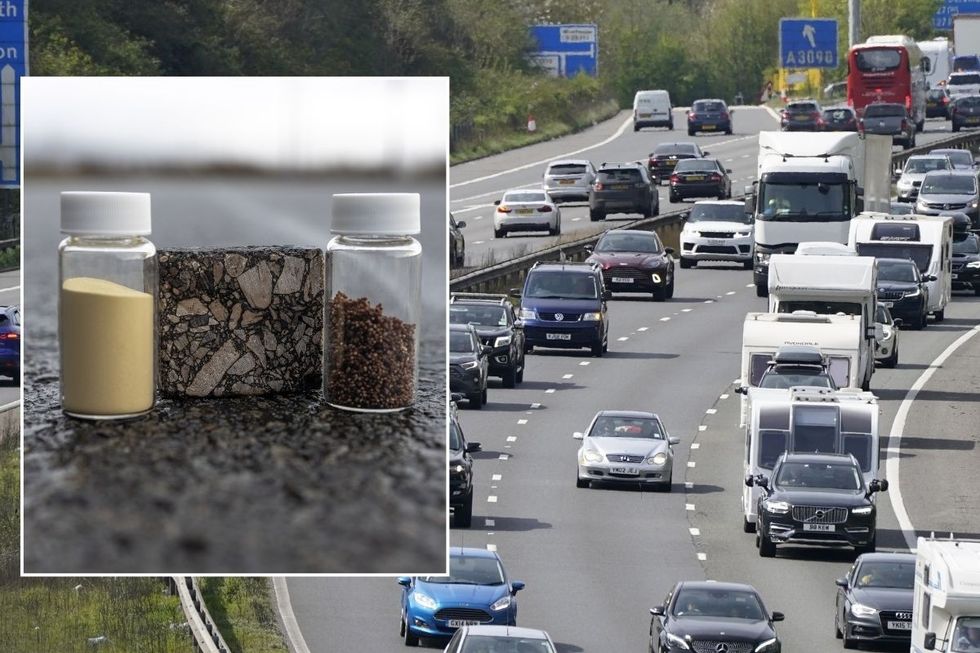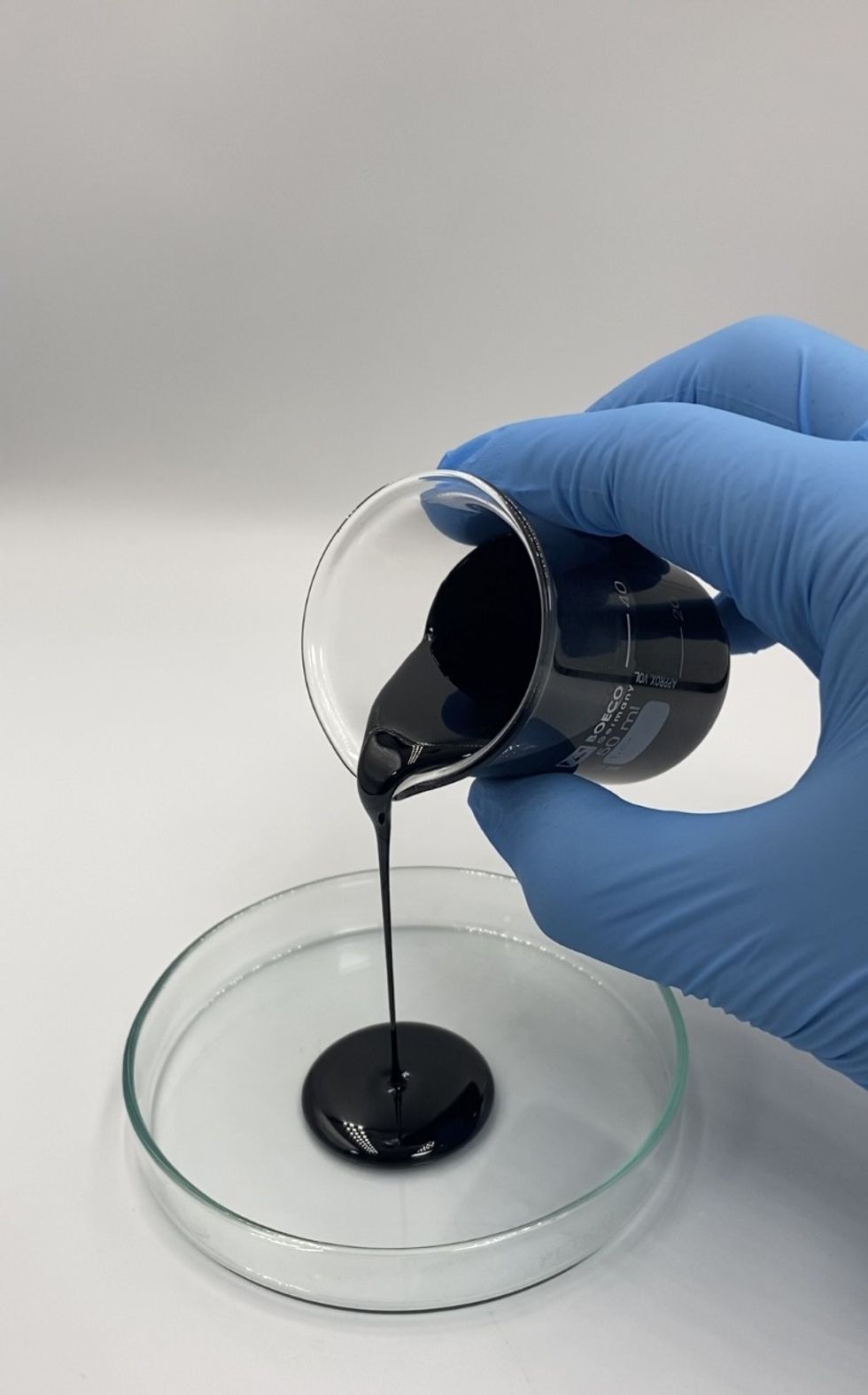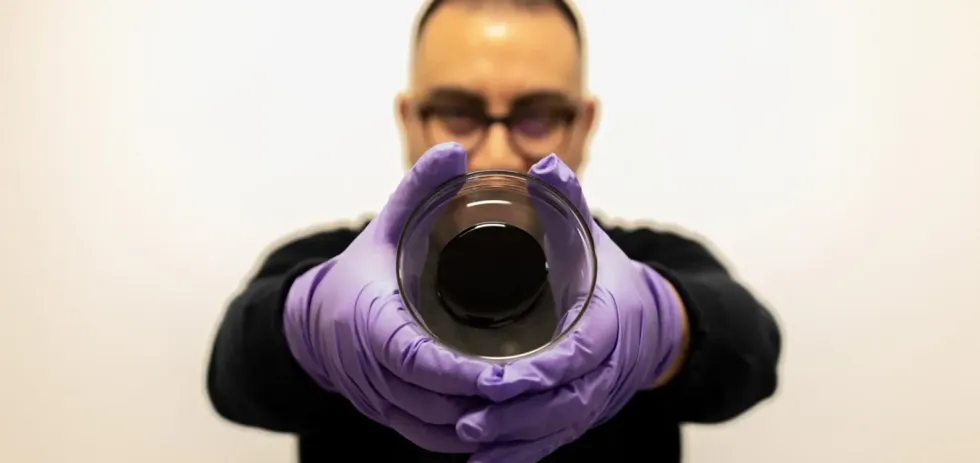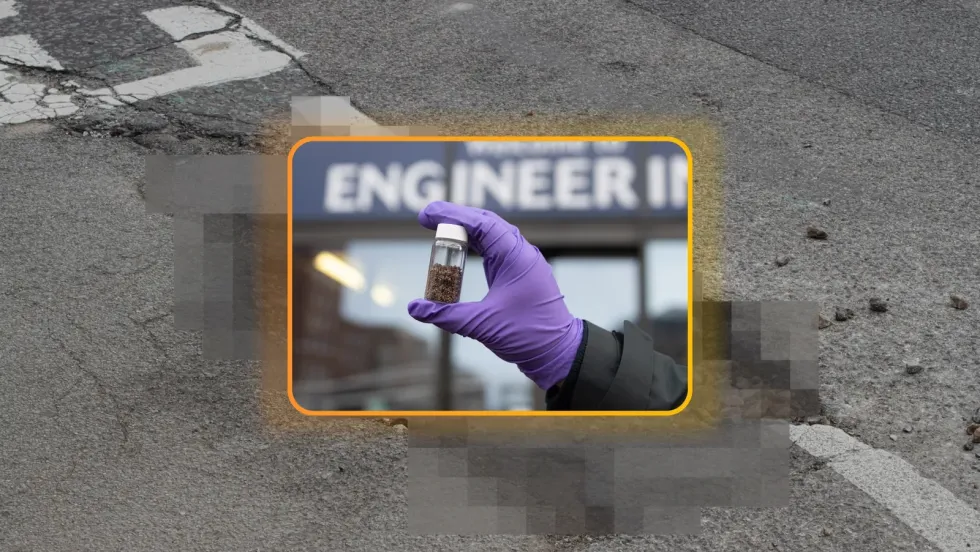Felix Reeves
Guest Reporter
British scientists have developed groundbreaking self-healing roads using artificial intelligence and biomass waste, offering a solution to the nation's £143.5million annual pothole crisis.
The revolutionary research, led by teams from Kings College London and Swansea University, has created asphalt that can automatically repair its own cracks without human intervention.
Working alongside Chilean scientists, the researchers have engineered a sustainable road material that incorporates plant-based components and recycled oils to combat Britain's deteriorating road infrastructure.
Laboratory tests have shown the innovative material can completely heal surface damage within an hour, potentially offering major benefits for the nation.
Do you have a story you'd like to share? Get in touch by emailing [email protected]

The research teams employed machine learning AI to study organic molecules in complex fluids like bitumen, the sticky black material used in asphalt mixtures.
Scientists developed a new data-driven model with Google Cloud to speed up simulations, advancing their understanding of how bitumen oxidises and cracks form.
This innovative approach aims to solve the widespread deterioration of UK roads, with recent estimates showing £16.3billion would be needed to bring roads in England and Wales up to standard.
The self-healing mechanism relies on tiny porous materials called spores, which are smaller than human hair and derived from plants.

These spores are filled with recycled oils that are automatically released when the asphalt begins to fracture. The release of these oils triggers a natural healing process that reverses crack formation in the road surface.
This innovative approach aligns with growing efforts to incorporate recycled materials in asphalt production, reducing reliance on fossil fuels.
In controlled laboratory conditions, the team demonstrated that their advanced asphalt material could fully repair a microcrack on its surface in under an hour.
Dr Francisco Martin-Martinez, an expert in Computational Chemistry at Kings College London, explained the nature-inspired approach: "When a tree or animal is cut, their wounds naturally heal over time, using their own biology.
"Creating asphalt that can heal itself will increase the durability of roads and reduce the need for people to fill in potholes.

"We are also using sustainable materials in our new asphalt, including biomass waste. This will reduce our dependence on petroleum and natural resources. Biomass waste is available locally and everywhere, and it is cheap."
Similarly, Dr Jose Norambuena-Contreras from Swansea University praised the project, saying: "We are bringing together experts in civil engineering, chemistry, and computer science to investigate the self-healing properties of a modified bitumen.
"We are proud to be advancing the development of self-healing asphalt using biomass waste and artificial intelligence."
While still in development, this breakthrough technology has significant potential to transform infrastructure maintenance worldwide.
LATEST DEVELOPMENTS:

The innovation comes at a crucial time as the highway sector focuses on reducing carbon emissions to support the UK Government's 2050 net zero target.
A significant portion of road-related carbon emissions currently stems from asphalt production.
Iain Burgess, UKI Public Sector Leader at Google Cloud, described their involvement: "It is inspiring to see how teams at Swansea and Kings College London are unlocking the power of cloud-based and AI tools, including Gemini and Vertex AI, to drive more efficient processes and discover chemical properties."
Find Out More...
The revolutionary research, led by teams from Kings College London and Swansea University, has created asphalt that can automatically repair its own cracks without human intervention.
Working alongside Chilean scientists, the researchers have engineered a sustainable road material that incorporates plant-based components and recycled oils to combat Britain's deteriorating road infrastructure.
Laboratory tests have shown the innovative material can completely heal surface damage within an hour, potentially offering major benefits for the nation.
Do you have a story you'd like to share? Get in touch by emailing [email protected]

The research teams employed machine learning AI to study organic molecules in complex fluids like bitumen, the sticky black material used in asphalt mixtures.
Scientists developed a new data-driven model with Google Cloud to speed up simulations, advancing their understanding of how bitumen oxidises and cracks form.
This innovative approach aims to solve the widespread deterioration of UK roads, with recent estimates showing £16.3billion would be needed to bring roads in England and Wales up to standard.
The self-healing mechanism relies on tiny porous materials called spores, which are smaller than human hair and derived from plants.

These spores are filled with recycled oils that are automatically released when the asphalt begins to fracture. The release of these oils triggers a natural healing process that reverses crack formation in the road surface.
This innovative approach aligns with growing efforts to incorporate recycled materials in asphalt production, reducing reliance on fossil fuels.
In controlled laboratory conditions, the team demonstrated that their advanced asphalt material could fully repair a microcrack on its surface in under an hour.
Dr Francisco Martin-Martinez, an expert in Computational Chemistry at Kings College London, explained the nature-inspired approach: "When a tree or animal is cut, their wounds naturally heal over time, using their own biology.
"Creating asphalt that can heal itself will increase the durability of roads and reduce the need for people to fill in potholes.

"We are also using sustainable materials in our new asphalt, including biomass waste. This will reduce our dependence on petroleum and natural resources. Biomass waste is available locally and everywhere, and it is cheap."
Similarly, Dr Jose Norambuena-Contreras from Swansea University praised the project, saying: "We are bringing together experts in civil engineering, chemistry, and computer science to investigate the self-healing properties of a modified bitumen.
"We are proud to be advancing the development of self-healing asphalt using biomass waste and artificial intelligence."
While still in development, this breakthrough technology has significant potential to transform infrastructure maintenance worldwide.
LATEST DEVELOPMENTS:
- Calls for Labour to scrap 'luxury' car tax to save drivers £400 a year - 'Wrong measure at the wrong time'
- Drivers slapped with thousands of traffic fines for breaking parking rules across popular UK city
- Countdown begins for new speed limits on major roads with drivers warned of March deadline

The innovation comes at a crucial time as the highway sector focuses on reducing carbon emissions to support the UK Government's 2050 net zero target.
A significant portion of road-related carbon emissions currently stems from asphalt production.
Iain Burgess, UKI Public Sector Leader at Google Cloud, described their involvement: "It is inspiring to see how teams at Swansea and Kings College London are unlocking the power of cloud-based and AI tools, including Gemini and Vertex AI, to drive more efficient processes and discover chemical properties."
Find Out More...
